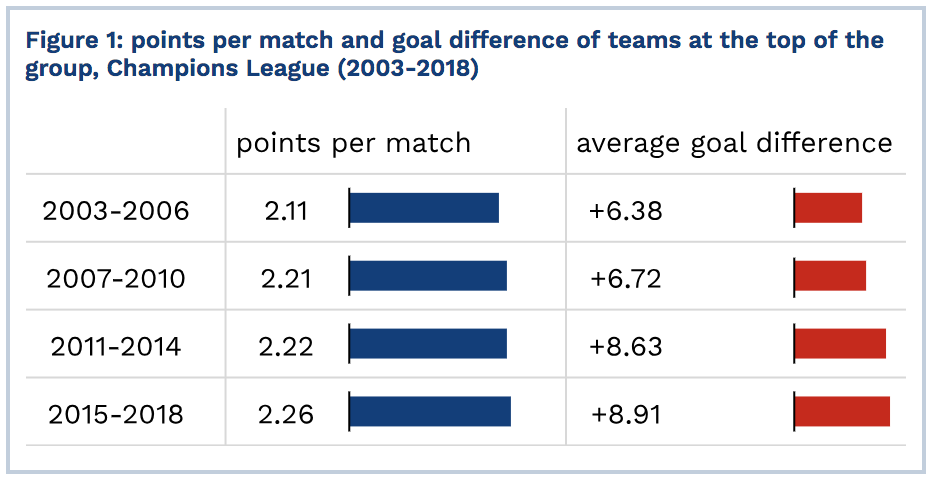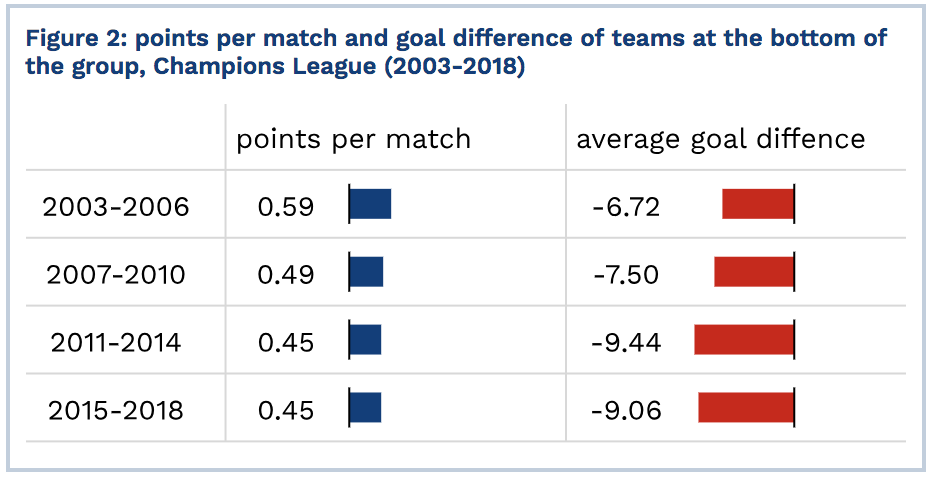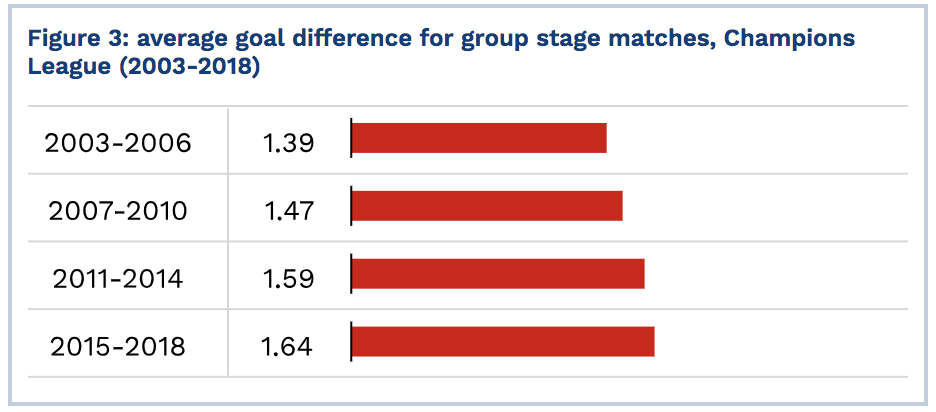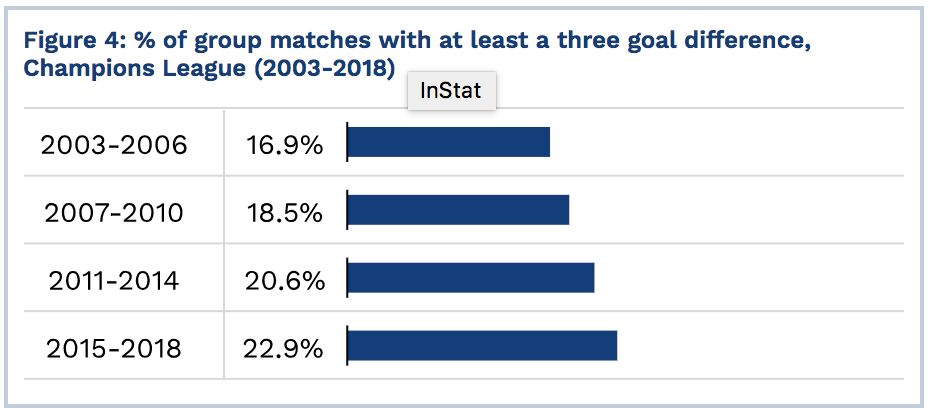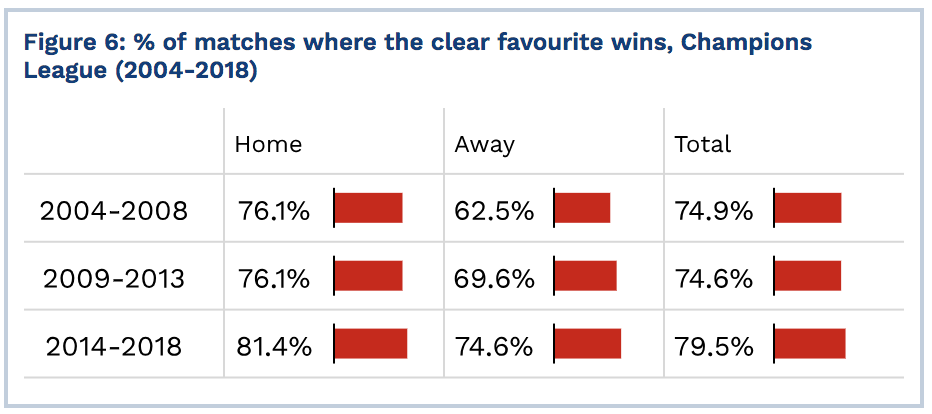February 12 – With UEFA searching for ways to find a greater competitive balance between clubs for its competitions, the latest research report from the CIES Football Observatory shows “a clear trend towards less balance and more predictability.”
“Changes in the competition format and the redistribution of resources are needed to preserve a sufficient level of sporting and economic balance,” say the report authors.
The analysis looks at the distribution of points at the end of the group stage of the Champions League, the growth in the winning score lines and the number of times the teams that are favourites in the betting markets go on to win.
“Teams at the top of the table have progressively obtained more points and significantly improved their goal difference. The opposite trend was observed for teams at the bottom of the group. The average goal difference in group stage matches also increased,” say the report authors.
“This is notably linked to the growth of fixtures which concluded with at least a three goal difference: from 16.9% during the first four seasons analysed to a new record of 22.9% between 2015 and 2018.”
The report also looks at the predictability of matches finding “the percentage of fixtures where teams that are clear favourites according to odds on the betting market go on to win went clearly up: 81.4% of wins at home between 2014 and 2018 (+5.3% in comparison to 2004-2008) and 74.6% away (+12.1%).”
The CIES authors suggest that to preserve the competitiveness of the competition then UEFA should consider reducing the number of teams qualifying for the group stage “while keeping an open system of competition and guaranteeing a greater percentage of revenue to those excluded.”
They also suggest keeping a proportion of the revenue generated by the Champions League aside to be distributed to clubs where the winning players were actually trained.
“Such a redistributive mechanism would have the great merit of recognising the fundamental role played by a multitude of clubs in developing the players who guarantee the high quality spectacle that the major teams produce and from which they derive benefit.”
See the full report at http://www.football-observatory.com/IMG/sites/mr/mr42/en/
Contact the writer of this story at moc.l1751590571labto1751590571ofdlr1751590571owedi1751590571sni@n1751590571osloh1751590571cin.l1751590571uap1751590571


